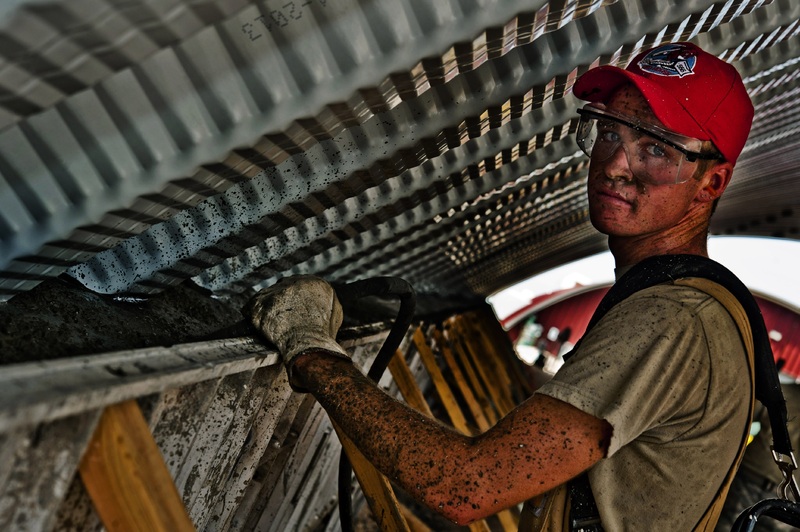Were you injured at work? You may worry about how you will pay your bills and take care of your family. The Colorado workers’ compensation system may help pay your lost wages and medical bills to help you get back on your feet. If you suffered a workplace injury, talk to Colorado attorneys for workers’ compensation benefits about your claim.
What is workers’ compensation?
Workers’ compensation is an insurance program that pays employees for workplace injuries. Workers’ compensation pays for most workplace injuries, even if you injured yourself at work. Unlike personal injury claims, like a car accident, you do not have to prove somebody else is at fault for your injuries. Workers’ compensation is a no-fault remedy for your workplace injury and lost wages. From workers’ compensation you can receive medical care without paying for the bills out of pocket, lost pay benefits and permanent disability compensation if you cannot return to the same type of work.
How does workers’ compensation work in Colorado?
We’ve talked about what workers’ compensation is, but you may have questions about how does workers’ compensation work in Colorado. Workers’ compensation in Colorado follows a specific process. The Colorado work comp helps work accident victims through the following process.
- The employer obtains workers’ compensation insurance to cover its employees.
- The employee suffers a workplace injury.
- The employee seeks emergency medical care and reports the injury to the employer within four days of the accident.
- Within ten days of receiving the report, the employer reports the injury to the Colorado Division of Workers’ Compensation.
- The employee continues to obtain medical care. The employer may elect to send the employee to a specific provider of its choice.
- If the employee cannot work, the insurance company pays a portion of the employee’s lost wages. The employer may elect to put the employee on light duty if appropriate and available.
- Pay benefits continue until the employee can return to work. If the employee cannot return to work due to the injury, the employee receives pay benefits indefinitely as a permanent disability.
- If the injured employee disagrees with the determination of benefits, the employee can file a workers’ compensation appeal. The appeal will be heard by an administrative law judge. Further appeals will go to the Industrial Claim Appeals Office and then the Colorado Court of Appeals.
Basically, after reporting you were hurt at work, you will seek medical treatment until you are healed or the treating physician determines you reached maximum medical improvement short of your pre-injury condition and you are some degree permanently impaired. After that, your workers’ compensation attorney and the employer’s insurance carrier will engage in a process to resolve the value of your work comp claim.

Is workers’ compensation a no-fault system in Colorado?
Yes–workers’ compensation is a no-fault system in Colorado. You can file a claim for benefits without proving your employer, a co-worker, or other person is at-fault for your injury. You can also claim benefits for an accident you caused, such as slipping off a ladder. Generally, all workplace injuries or injuries on the job are covered by workers’ compensation. There are a few exceptions, but your work comp attorney can talk to you about other options to pursue a claim.
The benefit of a workers’ compensation claim in Colorado under a no-fault system is that you do not have to settle your claim or file a lawsuit before you can get paid anything. In most personal injury cases, you have to reach a settlement or win a trial before you get paid anything.
If you have medical bills, lost wages and other out of pocket expenses in a personal injury case, you have to pay as you go and hope you get compensation in the end. In a workers’ compensation case, the work comp insurance company pays as you go, so they pay for treatment along the way and they pay you benefits for lost wages along the way.
How do I file a workers’ compensation case in Colorado?
Your first step after you receive emergency medical care is to notify your employer you were hurt at work. You need to notify your employer immediately.
If your workplace injury is an illness, you need to tell your employer as soon as you realize you are ill from a work condition. Your employer should submit a Form WC1 to the Colorado Division of Workers’ Compensation. The Form WC1 puts the Division of Workers’ Compensation on notice of the claim, income information and basic facts about the accident. The employer will also submit it to its insurance company for a determination of benefits and initiation of payments.
What if my employer won’t take a report of my workers’ compensation claim?
Sometimes employers refuse to accept your report of a workers’ compensation claim or try to discourage you from seeking workers’ compensation benefits. Although the employer doesn’t pay out of pocket for benefits when insured, the more claims an employer has the more likely it will pay an increased premium for workers’ compensation insurance. If your employer does not have insurance, it may have to pay out of pocket for your benefits. If your employer does not have work comp insurance, you should talk to a Colorado workers’ compensation attorney right away.
If your employer will not take your injury report, or fails to file a Form WC1, you can file the report yourself. You can complete a WC15–Worker’s Claim for Compensation and file it with the Division of Workers’ Compensation. Your employer has twenty days to evaluate your claim and advise if it accepts or rejects the claim.
Although you can wait up to two years to file your own work comp report, you should file as early as possible to begin receiving benefits. You should file a WC15 even if your employer does not have insurance because you may be able to receive payments from the Colorado Uninsured Employer Fund.

What medical care can I receive while on workers’ compensation in Colorado?
Workers’ compensation will pay for a wide range of relevant treatment and follow up care to get you back on your feet. This includes:
- Emergency care, such as an emergency room or urgent care visit;
- Doctor’s visits and evaluations;
- Diagnostic imaging, such as MRIs;
- Physical therapy, massage therapy and other forms of conservative treatment;
- Medication;
- Therapeutic injections
- Surgery
- Follow up rehabilitation to surgery and other procedures;
- Medical devices and supplies;
- Travel costs and mileage.
The standard for what treatment workers’ compensation will pay in Colorado is what is determined “reasonable and necessary” for your injuries. This decision may be challenged when the work comp insurance company refuses to pay for appropriate treatment.
How much lost wage will work comp pay in Colorado?
While you are out of work due to your workplace accident injury, you receive two-thirds of your average weekly wage in benefits. That amount tops out at 91% of the Colorado average weekly wage. Pay benefits continue until you can return to work. If you suffered a permanent total or partial disability, you may also receive a lump sum payment subject to statutory maximum amounts.
What does Colorado workers’ compensation pay if a workplace accident results in death?
If you lost a loved one due to a workplace accident injury, surviving dependents may receive benefits. These include pay benefits and compensation for funeral expenses. Colorado workers’ compensation sets a minimum benefit for cases involving a fatality. Pay benefits depend upon the deceased worker’s average weekly wage.
Dependent spouses may receive pay benefits for life or remarriage.
If a third party caused the accident, such as a car accident while your family member was driving in a work vehicle, you may also have a wrongful death case against the responsible party. That is not a work comp claim, but may greatly affect the amount of compensation family members can receive.
How can I win a workers’ compensation appeal in Colorado?
If your employer disputes your Colorado workers’ compensation claim, you may need to file an appeal with the Division of Workers’ Compensation to force your employer to pay on your claim. There are several key pieces of information in a work comp claim and appeal that you must prove:
- Your injury occurred at work, was the result of the work you perform, or occurred during the course and scope of your job;
- The type and severity of injuries;
- How the injuries were caused by a workplace accident or condition;
- Your average weekly wages;
- Whether you can return to work at any point after the injury;
- If your return to work is on a full time or part time basis;
- If your return to work is subject to any restrictions on job duties or work hours;
- That you made a timely report of injuries.
Although this may seem simple, you must have evidence of any disputed issue to clear up confusion and fight back against your employer’s accusations and defenses. For example, your employer may question whether a back injury was pre-existing or that only some of your back pain was caused by a workplace accident. You will need medical records and likely a medical expert to testify about the cause of your injuries. An experienced workers’ compensation attorney can assist you with obtaining medical care and presenting a strong case for your workers’ compensation claim.

Do I need to hire a Colorado workers’ compensation attorney?
There is no requirement to hire a Colorado workers’ compensation attorney for your claim. You can file a claim and obtain benefits without an attorney.
Should I hire workers’ compensation attorneys in Colorado?
Although you are not required to hire workers’ compensation attorneys in Colorado for your claim, it may be to your benefit to hire an experienced attorney.
Employers and their insurance companies do not want to pay you a penny more than they have to and they will take every opportunity to lower the value of your claim, deny treatment and try to convince you to get as little treatment as possible. They will send you to medical providers who are on their side. Those providers may recommend less treatment or less expensive treatment. If you are disabled, they may give you an unreasonably low impairment rating, which will affect the value of your case.
You need good treatment and a fair evaluation of your case. Your workers’ compensation attorneys can make sure you see a physician who cares about your treatment and you receive a fair opportunity to heal and get back to work. Your workers’ compensation attorneys can fight against appeals, advise you on your legal rights and fight to get you fair compensation at the end of your claim.
Oh, no! My ex-neighbor got hit by an unattended forklift while at work last weekend, causing him o suffer from multiple injuries. I believe he needs to reach out to a legal expert to determine what kind of action he should take next. I mean, you said it best – we’re expected to receive compensation benefits until we’re deemed fit enough to get back to work.
LikeLike
Sorry to hear your ex-neighbor suffered injuries. If this happened in a state in the US, he should definitely talk to a workers’ compensation attorney in the area to learn more about his rights.
LikeLike